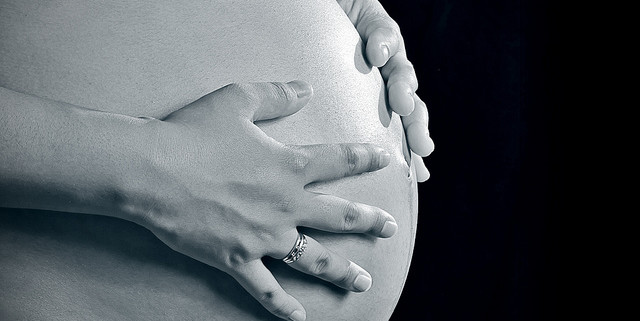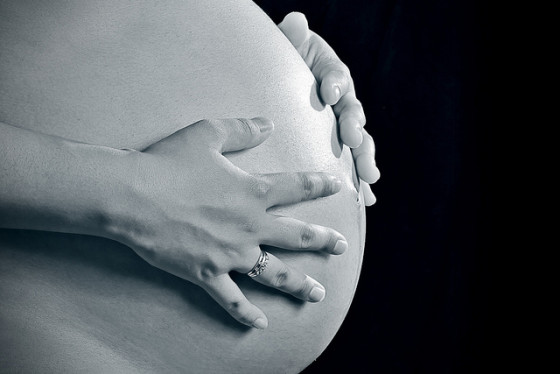Preeclampsia: High Blood Pressure and Your Baby
Last updated Aug. 29, 2017.
Pregnancy causes a lot of changes in your body. It’s not just the physical aspects like your growing belly and sore feet — your body chemistry changes, too. That may cause harmless side effects like unusual food cravings, but it can also cause more dangerous health conditions. Preeclampsia is one of the latter. Left untreated, it can be fatal for both mother and child.
Contents
What is preeclampsia?
Preeclampsia is a pregnancy-induced condition characterized by the sudden onset of high blood pressure and damage to at least one organ, typically the kidneys or the liver. It usually develops during the second half of the pregnancy and can last for several weeks after delivery. It’s also the most common pregnancy complication, affecting up to 10% of pregnancies.
Preeclampsia is one of four types of pregnancy-related blood pressure problems:
- Gestational hypertension involves high blood pressure, but without the organ damage associated with preeclampsia.
- Chronic hypertension refers to high blood pressure that predates the pregnancy or developed early on in the pregnancy.
- Chronic hypertension with superimposed preeclampsia happens when you have preexisting high blood pressure that worsens over the course of the pregnancy.
A normal blood pressure reading for a pregnant woman is 120/80 mm Hg and below. High blood pressure is indicated at readings of 140/90 mm Hg and above.
How serious is preeclampsia?
The causes of preeclampsia are not fully known, but experts believe it may be caused by abnormalities in the blood vessels of the placenta that restrict blood flow. These abnormalities may be caused by genetic mutations, problems with the immune system, or physical damage to the uterus.
The restricted blood flow to the placenta can deprive the baby of needed oxygen and nutrients. That may cause premature birth and slow down baby’s development — babies born to mothers with preeclampsia are at a higher risk for both issues. They may also be at higher risk for certain health problems, including cardiovascular problems and diabetes, later in life.
Preeclampsia is very dangerous to the mother as it can cause strokes and seizures (eclampsia). It may develop into HELLP syndrome, a serious condition in which the red blood cells start to break down and the liver sustains serious damage.
Preeclampsia Symptoms and Treatment
Preeclampsia symptoms include sudden weight gain (over and above the expected pregnancy-related gain), headaches, changes in your vision, pain in your upper right abdomen, and shortness of breath. If you have any of these symptoms, you should contact your doctor right away to test for preeclampsia and other conditions that may affect your pregnancy.
Some women do not develop noticeable preeclampsia symptoms, but doctors typically test your blood pressure and urine at prenatal visits and will find out if you have the condition. Preeclampsia is indicated by high blood pressure combined with high levels of protein in the urine. If you have both of those symptoms, your doctor will order further testing to get a definitive diagnosis and to determine how serious the condition is.
There is only one cure for preeclampsia: delivery. However, sometimes preeclampsia sets in so early that the baby may not be able to survive outside the womb. If that’s the case, you may need to take medications to lower your blood pressure or steroids to temporarily improve the function of your liver and to help the baby’s lungs develop. If your preeclampsia is severe enough, your doctor may also give you anticonvulsants to decrease the risk of seizures.
Preeclampsia can be fatal to the mother; it’s one of the most common causes of death due to pregnancy (about 8% of all maternal deaths). In some cases, the baby may need to be delivered very early in order to save the mother’s life.
Can preeclampsia be prevented?
Unfortunately, there’s no guaranteed way to prevent preeclampsia from happening. There are also certain factors that increase your risk of developing the condition, including:
- Personal and family history. If you already have high blood pressure, have developed high blood pressure during a previous pregnancy, or if blood pressure disorders run in your family, you’re at higher risk for developing preeclampsia. New research shows that certain DNA variations in your baby also may increase your odds of preeclampsia — something you cannot predict or prevent.
- First pregnancy with a particular father. Your risk is higher for your first pregnancy with a new father than a second or third pregnancy with the same father; this is thought to be caused by differences in immunological compatibility between the mother and each father.
- Age. The older you are, the higher your risk, especially after the age of 40.
- Multiple pregnancies. Carrying twins, triplets, or greater numbers of multiples increases your risk.
Other health conditions can also increase your risk, including obesity, migraine headaches, diabetes, history of blood clots, and immune disorders.
See also: Can Obesity Before Pregnancy Cause Cerebral Palsy?
What if my preeclampsia was misdiagnosed?
Preeclampsia is extremely dangerous to both you and your little one. In some cases, it can even be fatal. The good news is that it’s usually fairly easy to detect. Blood pressure and urine testing is a standard part of prenatal care and should catch any problems early so you have time to work with your doctor to minimize the risks to yourself and to your child.
Unfortunately, the tests — and doctors — may not be perfect all the time. If a doctor misses or misdiagnoses preeclampsia, the consequences can be severe. In some cases, doctors may be legally liable to their patients for failing to diagnose this and other serious conditions. For example, one Massachusetts woman was awarded more than $6 million in a lawsuit against her doctor for failure to diagnose preeclampsia — she suffered a severe stroke as a result of the condition and was left with permanent vision loss and mental and physical disabilities.
Of course, a medical malpractice lawsuit for injuries to yourself or to your baby is a time-consuming process and you’re not guaranteed to get compensation. A cash award can help you cover medical bills, childcare costs, and other expenses, but no amount of money can undo an injury.
The best way to keep yourself and your baby safe is to be proactive about your care. Contact your doctor immediately about any symptoms you experience — it’s always better to be safe than sorry when it comes to pregnancy. If you’re not comfortable with your doctor’s answer, you may choose to seek a second opinion. The most important thing is to keep yourself and your growing little one as safe as possible.
If you’ve suffered from misdiagnosed or un-diagnosed preeclampsia, Safe Birth Project may be able to help. Contact us today to learn about your options.
Image Credit and License









Leave a Reply
Want to join the discussion?Feel free to contribute!